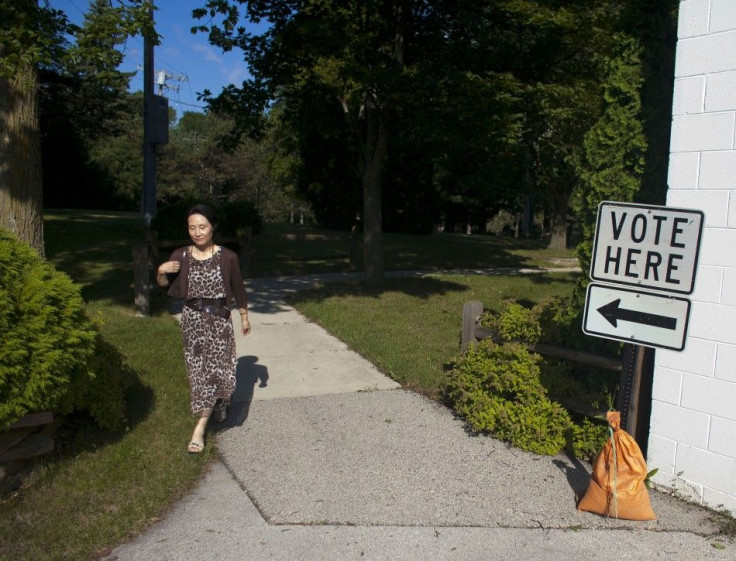Wisconsin's Historic Recall Elections Wrap Up This Week

Wisconsin's series of recall elections concludes Tuesday when voters go to the polls in two state Senate districts where Democrats are being forced to defend their seats.
No matter who wins, Gov. Scott Walker's Republicans will retain control of the Legislature, where the battle over public workers' union rights was waged earlier this year with public protests, legislative maneuvering and court challenges.
Republicans have managed to keep control of the state Senate -- 17 to 16 at last count -- because Democrats managed to unseat only two out of six Republican state senators last week.
To many Wisconsin voters, especially Republicans, the special elections have been, as 70-year-old Wade Ellingson of Fond du Lac put it, "a waste of time and money."
Nevertheless, Tuesday's two final votes, like the seven before them, will be watched closely.
Two Democrats who opposed Walker's anti-union bill and even fled the state for weeks in an unsuccessful effort to prevent a quorum and delay passage -- Jim Holperin of Conover and Robert Wirch of Pleasant Prairie -- will be defending their seats.
"As always in Wisconsin politics, one has to give the incumbent an edge," said Mordecai Lee, governmental affairs professor at the University of Wisconsin, Milwaukee.
"It is likely the two Democratic incumbents will win their recalls -- but it is not a slam dunk," he said.
Holperin seems to be in the tighter race. His rival is Kim Simac, founder of the Northwoods Patriots, a Tea Party group.
Though Simac is a political novice, the district has leaned Republican in the three years since Holperin was elected.
READING THE TEA LEAVES?
Inside Wisconsin, Tuesday's votes will again be seen as a referendum on Walker's policies since his election last year. It may also give Democrats who hope to recall Walker next year a sense how such an effort might turn out.
Outside the state, pundits will be seeking more clues to what 2012 holds in the national elections.
Despite weeks of demonstrations, Walker and his GOP allies managed to pass the legislation, which severely diluted union bargaining power and also made public workers pay more for healthcare and pensions. He said the measure was needed to help Wisconsin close a $3.6 billion budget deficit.
Democrats cried foul, pointing out that public workers already agreed to steep benefit cuts. They called the effort as union-busting, designed to hobble organized labor -- a major source of Democratic Party financing -- ahead of 2012.
The fight thrust Wisconsin into the national spotlight, igniting massive pro-union protests and political fights that led to the recall efforts against six Republicans who backed the union curbs and three Democrats who opposed them.
On Tuesday, analysts will be watching turnout carefully, since the issue of Senate control --- and a possible legislative block on Walker's conservative agenda -- is settled.
Analysts say Democrats may be less motivated to turn out to vote. Tea Party activists, meanwhile, appear more energized by the recent fight in Washington over the debt ceiling, seen as a clear victory for conservatives in the budget-cutting concessions agreed by President Barack Obama and Democrats.
The nine Wisconsin recalls are historic. Until this summer, there had been only 20 state-level recall elections in the 235-year history of the United States.
Reflecting the national spotlight Wisconsin drew over the winter as Walker and his allies battled state Democrats, the tidal wave of money poured into the campaigns has made the record books, too.
Mike Buelow, research director for the Wisconsin Democracy Campaign, estimates that candidates and outside groups spent as much as $37 million on the recalls.
That amount is "really astronomical for Wisconsin," he said -- more than double the amount spent on state legislative races last year when 116 seats -- not nine -- were up for grabs.
With the recalls seen as something of a rehearsal for 2012, experts say the spending could be a harbinger of record outlays next year.
"This is the first major election of 2012," said Joseph Heim, political science professor at the University of Wisconsin, La Crosse, "and one of the things we saw here was huge amounts of money."
© Copyright Thomson Reuters 2024. All rights reserved.











